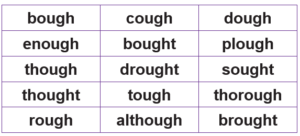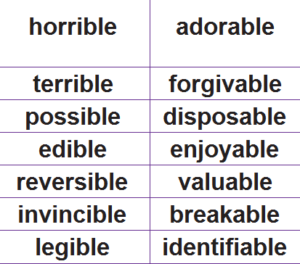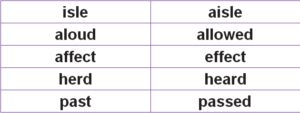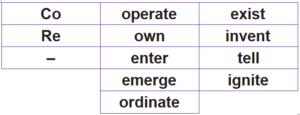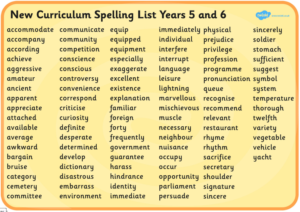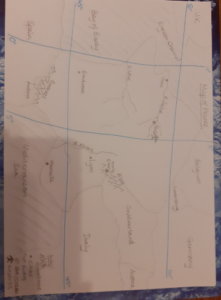Spellings that we have covered this term.
Using a variety of the spelling strategies, go through the different spellings that we have been learning throughout the term.
Words with ‘ough’ letter pattern
| Spelling word | How it sounds |
| Through | Th – roo (long oo digraph) |
| Rough | R – uff (short ‘u’ sound as in umbrella) |
| Dough | D – oh (The vowel says it’s name not it’s sound) |
| Thought | Th – or – t (the ‘or’ digraph as in ‘for’) |
| Plough | Pl – ow ( the ‘ow’ digraph as in ‘cow’.) |
Silent letter words
| doubt | Plus any others you can remember / think of to practise. |
| environment | |
| February | |
| thistle | |
| island | |
| solemn |
Plurals
| Cups | Sheep |
| Bushes | Potatoes |
| Cities | Parties |
| Monkeys | Radios |
What other plurals can you think of?
-able and –ible words
Think about what the rule is for adding –ible or –able.
Homophones
Using a hyphen with the prefixes co and re
Use of the apostrophe for contractions or to show possession:
| Contractions | For possession |
| Could not – couldn’t | The lions roar. – the lion’s roar |
| Can not | The cats ball. |
| Should not | The lorrys load. |
| It is | Williams uncle. |
| Will not | The dogs dinner. |
| Has not | Freds apples and oranges. |
| She is | I hope the dogs bark will not wake the neighbours baby. |
Modal verbs showing a level of possibility.
Put these modal verbs in to sentences to show their level of possibility:
| could | may |
| won’t | must not |
| ought | will |
| must | should not |
Etymology – finding the origin of a word.
‘She chucked a banana, chocolate and a cardigan into her duffel bag’
Using a dictionary, find out where the underlined words originated.
What words have got an origin that you found unexpected? (Remember ‘ketchup’ originating from Cantonese/ Chinese and being surprised?)
Year 5/6 spelling list
Finally, it’s always a good idea to go over the Year 5/6 list as often as you can.
Geography Work
Pick a country of your choice and use an atlas or Google maps to tell me about the country. You need to use your observational skills for this fieldwork. It must have a key to name the symbols you have drawn in.
It does not have to be an exact outline of your country (see my example!) as it is all about you using your map skills.
You could add in mountain ranges, rivers, surrounding countries, seas/oceans, lakes, lines of longitude and latitude, rivers, any information your atlas tells you.
What do you notice about your country compared to the UK? (E.g. France is about 2.5 times bigger than the UK. France has many countries surrounding it while the UK is an island, etc.)
